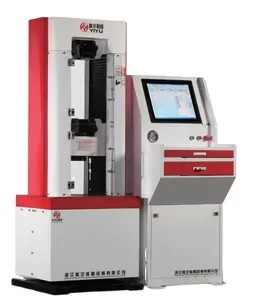

Factory Direct High Quality Universal Material Test Machine/lab Machine Test Equipment/universal Testing Machine

Discharge Tester TMAX Brand TMAX Brand Lithium Battery Discharge Testing Machine Battery Pack Discharging Tester Aging Machine





Discharge testing machines are essential tools in the realm of battery and power system analysis. These devices are designed to assess the condition and performance of batteries by simulating various discharge conditions. By doing so, they provide invaluable data on battery health, capacity, and the ability to sustain loads over time.
The applications of discharge testing machines span across various industries, from automotive battery manufacturers to renewable energy systems. They are also crucial in sectors where reliable backup power is critical, such as hospitals and data centers. Different types of these machines cater to specific battery technologies and sizes, ensuring a broad spectrum of batteries can be tested, from small cells to large battery banks.
A discharge testing machine typically comes equipped with features that allow for constant current discharge, capacity testing, and load testing. The materials used in these machines are chosen for durability and conductivity, ensuring accurate readings and long-term usability. Advanced models may also include temperature monitoring to safeguard against overheating during tests.
The primary advantage of using a discharge testing machine is the ability to predict battery life and performance, which is crucial for maintenance scheduling and system reliability. Additionally, these machines help in identifying batteries that are underperforming or nearing the end of their usable life, thus preventing potential failures.
When selecting a discharge testing machine, it is important to consider the specific needs of the application, such as the type of battery to be tested and the required discharge rates. The machine's accuracy, ease of use, and data reporting capabilities are also key factors that can influence the decision-making process.
For comprehensive electrical system analysis, complementary tools such as circuit breaker testers and megohmmeters may be used alongside discharge testing machines. These additional instruments provide a more complete picture of the system's health and are valuable for thorough diagnostics and maintenance planning.